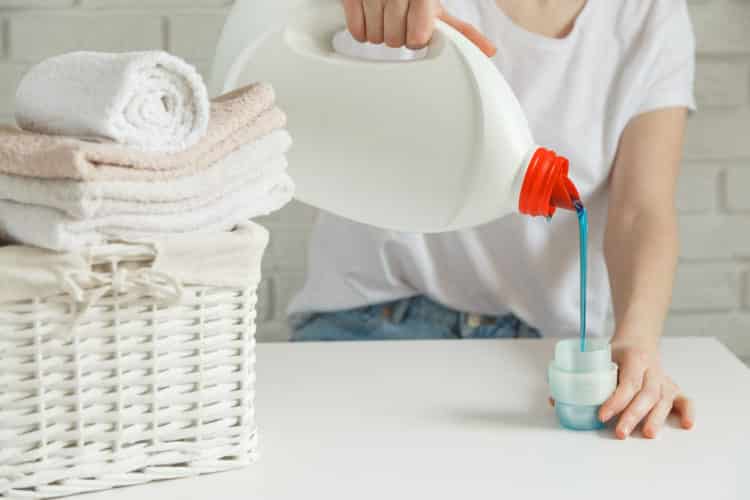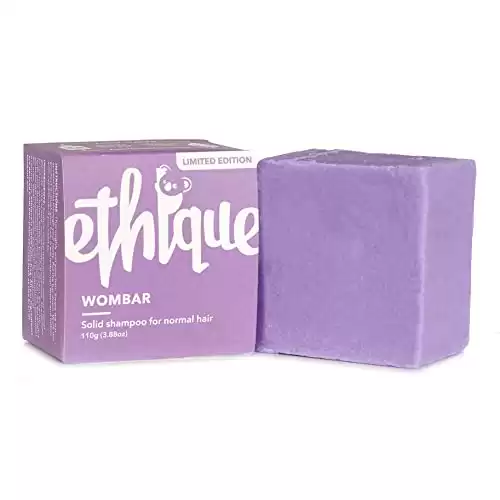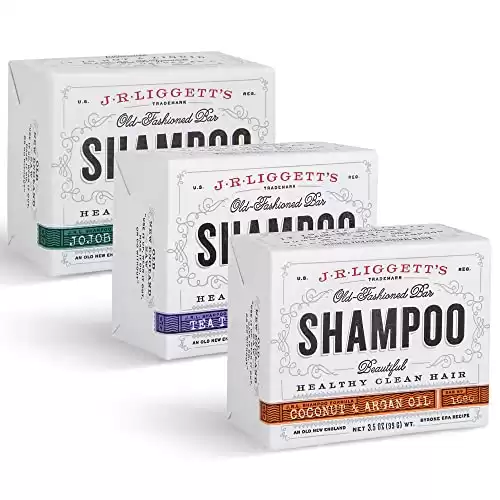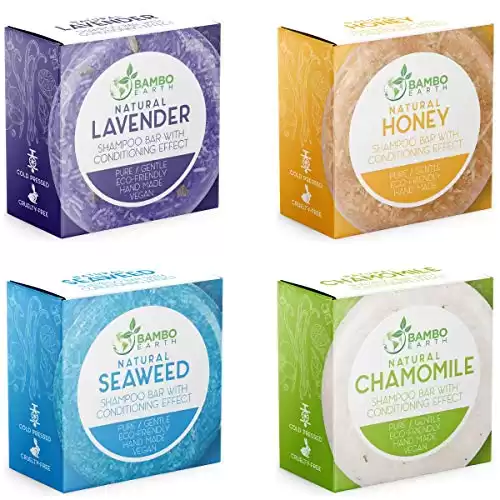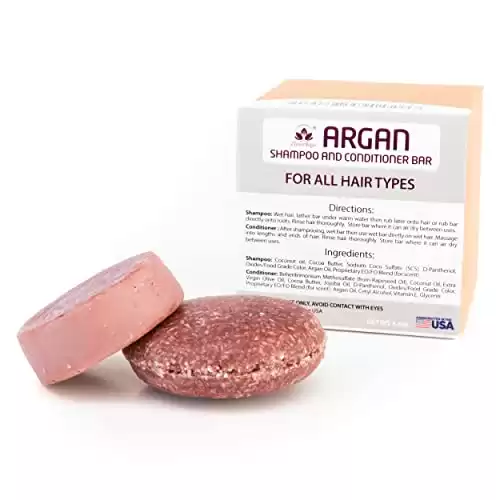Fabric softener belongs in the laundry room. Shampoo belongs in the bathroom.
If you have any questions about the above information, this guide will help to answer them.
Is Fabric Softener a Good Hair Conditioner?
Fabric softener is meant for clothing. Conditioner is meant to be used to take care of your hair, especially when used with a cleansing shampoo. Conditioning bars for hair, like old-fashioned soap, are an alternative to consider using for those who are looking for alternative options.
On the surface, it might seem that fabric softener and conditioner provide a similar outcome. The former soothes and smooths natural fibers in clothing, while the latter does the same for your hair.
You’ve got to go beyond that comparison. You’ll know that you shouldn’t be using fabric softener for your hair after looking at the ingredients on the container.
The reason why freshly washed clothing feels so soft after using fabric softener is because of the quaternary ammonium compounds the product contains.
It’s made from lipids that coat the apparel with a fatty layer that makes them softer and smoother to the touch.
Any chemicals contained in those lipids cling to the clothing in that outer layer, prolonging direct exposure to them. You’re literally sleeping in a chemical bath after washing your pajamas with this product.
Here is a closer look at the ingredients found in fabric softeners that are potentially problematic, even if you’re not using this product as a conditioning agent.
1. Quats
This name is shorthand for the quaternary ammonium compounds. They include ingredients like hydroxyethyl methyl ammonium methyl sulfate, distearyldimonium chloride, and diethyl ester dimethyl ammonium chloride.
Some quats are allowed to be listed under a vague term, like biodegradable fabric softening agents. You’ll also want to look for cationic surfactants.
Prolonged exposure to these ingredients increases the risk of triggering asthmatic reactions. They are also potentially harmful to human reproductive systems.
2. Colors and Preservatives
When you see these ingredients on the label of a fabric softener container, you can expect any number of potential chemicals to be included in the product.
The most worrisome of the bunch is glutaral, which is known the cause skin allergies and trigger asthmatic symptoms.
Another problematic ingredient in this category is methylisothiazolinone. It’s a potent skin allergen that can cause massive hives to form on your skin or even cause swelling that makes it harder to breathe.
Glutaral and glutaraldehyde are known toxins to marine life.
Some artificial colors have potential carcinogenic links, while others might contain impurities that can lead to the same result.
You’ll find these ingredients in fabric softeners that come in all forms, including bars, crystals, and pellets.
If you wouldn’t want to put those items in the washing machine, why would you decide to use them as a conditioner in the shower?
3. Fragrance
Today’s household products have more than 3,000 fragrance ingredients when looking at them as an industry. Because of today’s labeling requirements, it’s almost impossible to know what is in your fabric softener.
- Phthalates help to disperse the scent when exposed to the environment, ensuring that you can detect the smell.
- Galaxolide is a synthetic musk that has the potential to accumulate in the body.
- Mixed fragrances and ingredients contribute to dermatitis, trouble breathing, and potential harm.
Even if you vent the odors outside while using fabric softener, anyone sensitive to those chemicals could have an adverse reaction to them.
Imagine that your nose feels itchy just smelling a fabric softener. What would it be like if you inappropriately used it as a hair conditioner?
You must shop carefully for conditioners because they can have some of the same ingredients. Anything containing phthalates should be avoided.
Better Options Than Fabric Softener to Use
If you don’t want to use a hair conditioner for some reason, your best option is to use natural products to clean your hair.
When you want softer locks, you can wash your hair with a half-cup of distilled white vinegar. The smell won’t linger, especially if you have a quick rinse. This option also works well on your clothing.
You can try using wool dryer balls with your hair. The natural lanolin in the product helps your hair have less frizz and static, and they’re often suitable for people with sensitive skin.
You can purchase them independently or make your own with yarn and a fiber core.
Does rolling a wool ball around the top of your head feel awkward and silly? You bet! That’s why I highly recommend using shampoo and conditioner bars instead if you want to avoid problematic chemicals and other substances.
What Are the Benefits of Using Shampoo and Conditioner Bars?
Most people use shampoo and conditioner. In the United States alone, about 300 million people are using these products as part of their hygiene routine.
That figure equates to over one billion bottles being used and thrown into waste systems each year. Less than half are ever collected for recycling, which means they end up in landfills, as litter, or in the ocean.
It takes over four centuries for a plastic bottle to decompose. You can eliminate that issue personally with a switch to shampoo and conditioner bars.
That’s only one benefit that comes from this investment. Here are a few more advantages to consider when making this switch.
| Shampoo Bar Benefit | Why This Benefit Is Important in the Bathroom |
| Gentle on the Body | Shampoo bars don’t contain parabens or sulfates. That means you’re less likely to experience hair damage when using it compared to more traditional products. It won’t strip away the body’s natural oils. |
| Improved Storage | If you look at any interior design image, do you see a huge collection of shampoo bottles in the bathroom? When you switch to shampoo and conditioner bars, you’re creating a minimalistic aesthetic that eliminates clutter. Place it in a wooden soap dish for a more elegant look. |
| Natural Cleaning | You won’t have preservatives that leave your scalp dry when using this product. More natural ingredients are included in the product that help to nurture your hair, including vitamins, minerals, and natural oils. Look for options like argan oil, olive oil, or lavender oil for the results you want. |
| Better Investment | A shampoo or a conditioner bar can last for up to 90 washes. That’s the equivalent of three standard bottles of liquid shampoo. Since you won’t need to shop as frequently, there’s more time to handle other chores. The concentrated formula lets you wash and rinse without worry. |
| Natural Scents | You can find shampoo and conditioner bars without chemical fragrances. They use essential oils to deliver a lovely smell that can last with you for hours after the shower. Your hair and scalp will thank you! |
| Traveling Benefits | You can eliminate the clutter and mess when traveling if you use shampoo and conditioner bars. Instead of bagging the items to prevent them from leaking or getting tossed out of a security line for unauthorized liquids, you can pack and go with quick convenience. |
| Multi-Purpose Product | Shampoo and conditioner bars can be used for multiple purposes, including washing your body or clothing. It’s a great option for campers because you can pack one non-liquid product that serves your cleanliness needs. You can even use it on pets. |
Best Shampoo and Conditioner Bars to Use Today
When I need to focus on my hair, I turn to the following products to ensure I get enough bounce and shine for any occasion.
1. Ethique Solid Shampoo Bar
With a dozen different scents from which to choose, you can enjoy this sulfate-free product.
It’s plastic-free, helps to heal damaged hair, and only uses naturally derived ingredients. My favorite option is the lavender and eucalyptus.
The shampoo bar is made from betaine, which comes from sugar beets, and cocoa butter. If you have trouble with itchy skin after washing your hair, you’ll notice an improvement immediately!
You won’t need to worry about build-up at all. Once I rinse it out, my hair stays shiny and clean for much longer than with what comes in bottles.
2. JR Liggett’s Shampoo Bar
These vegan shampoo bars do a great job for anyone with oily skin. You’ve got to use it regularly to see improvements, but you’ll notice changes happening from the first wash. You get a clean and mild scent with three options: coconut, tea tree oil, and jojoba.
Each shampoo bar is handmade in the United States. No chemicals, detergents, or synthetic oils are ever used in the product.
Whether you’ve got colored, curly, or permed hair, you’ll find consistently excellent results available with this investment.
3. Bamboo Earth Shampoo Bar
This product grouping offers a four-pack of shampoo bars to enjoy. I love to use the Chamomile one after a stressful day.
You also get natural honey, lavender, and seaweed options that come in a zero-waste, biodegradable package.
The only disadvantage here is that some of the products do contain sulfates. It’s not the main ingredient, and the goal is to create bubbles, but it’d still be a little better of an experience without that addition.
One of the ingredients is palm oil. Although I’m not concerned about its inclusion, some people are, and that information should be given upfront.
4. Clever Yoga Argan Shampoo and Conditioner Bar
This handmade shampoo bar uses a coconut oil base with argan oil to create a wonderful outcome.
You get a conditioner bar as well, giving you the traditional two-step cleansing process that some people love.
It uses vegetable-based glycerin instead of petroleum, although the vitamin E is synthetic (it prevents oxidation). It’s the same product you’d take as a supplement.
I’ve found the moisturizing and cleansing to be refreshing. The amount of lather is nice, and there’s less plastic waste involved.
Should I Use Fabric Softener in My Hair?
Fabric softener should never be used in a person’s hair. Anyone who needs an alternative to bottled shampoo would do better with shampoo and conditioner bars. These products use essential oils to create more softness and shine while encouraging extra hydration.
I received my first shampoo bar as a Christmas gift a couple of years ago. I gave it a smell, and it seemed nice.
I promptly stashed it in the bathroom cabinet. It stayed there for six months.
It was only when I ran out of shampoo and had a bunch of junk in my hair that I decided to give it a try. To say I was pleasantly surprised by the result would be an understatement.
I was an instant convert. The speed at which my hair was clean was incredible, and it felt soft to the touch without needing extra conditioner.
If you have hair frizz that won’t stop, I highly recommend using a shampoo bar (and a conditioner bar, if needed) instead of opting for fabric softener. It’s safer, healthier, and offers better results.

